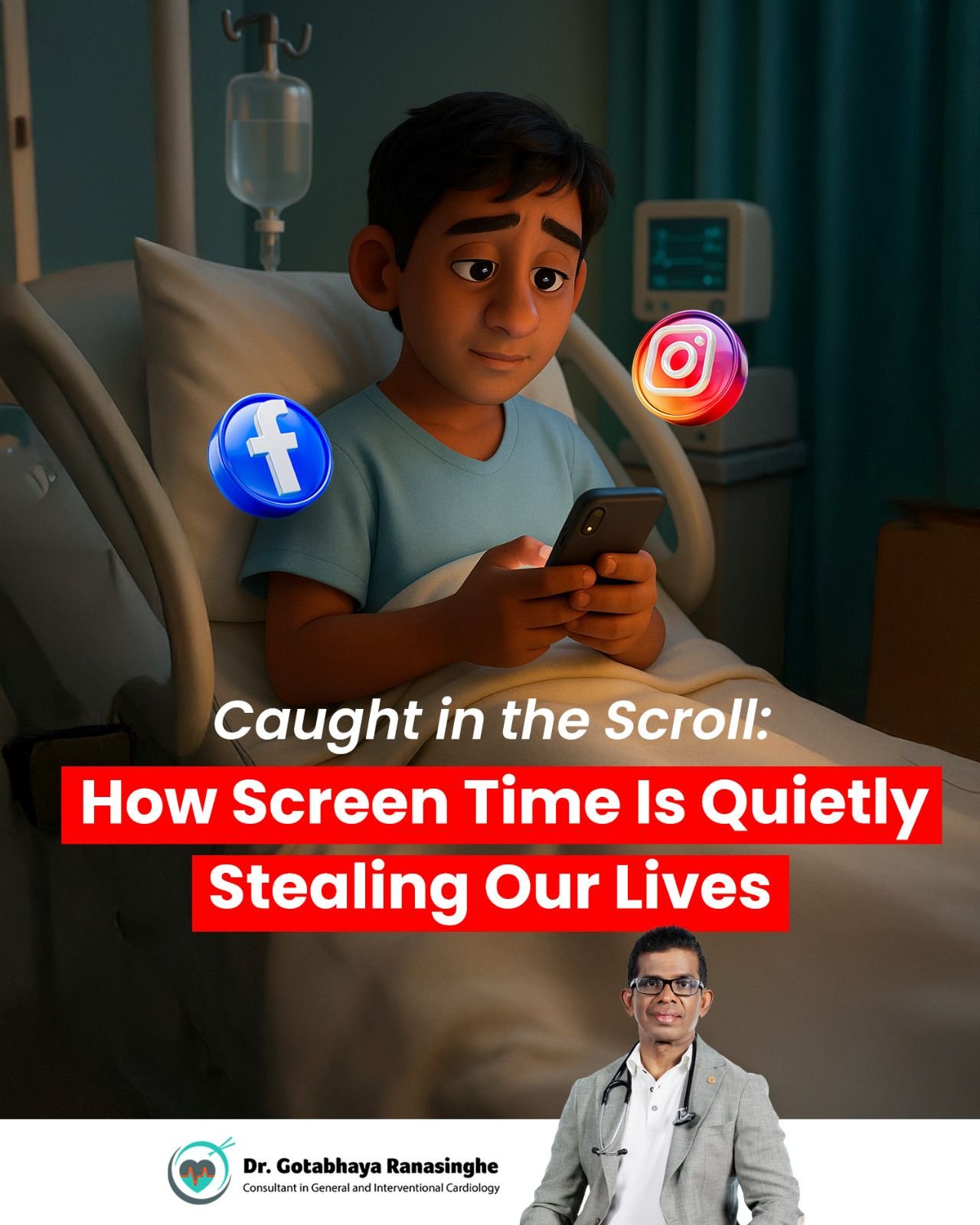As someone who has observed lifestyle trends for years, I’m growing increasingly concerned by a modern epidemic affecting people of all ages but especially the young. It’s not a virus, a nutrient deficiency, or a genetic disorder. It’s the device in our hands.
What began as occasional distraction has evolved into chronic digital dependence bringing with it real and measurable impacts on heart health, stress levels, relationships, and overall physiological well-being.
The Unseen Cardiovascular Toll of Constant Connectivity
Today, being “always online” is seen as productive and expected. But we need to ask at what cost to the heart?
Constant screen exposure stimulates the nervous system in ways that mimic chronic stress. Each notification, message, or endless scroll keeps the brain and body on high alert. This overstimulation increases cortisol levels, raises resting heart rates, and disrupts the natural balance of the autonomic nervous system.
Over time, this persistent state of digital arousal can lead to what I call “digital palpitation” a subtle, yet chronic cardiovascular stress response. Though not always clinically dangerous in the short term, this digital induced overstress weakens heart resilience, contributes to insomnia, anxiety, and potentially elevated blood pressure, all risk factors for long-term cardiac strain.
Many don’t notice it until it shows up as chest tightness, fatigue, sleep issues, or a constant sense of being “on edge.”
Relationships: Physically Close, Emotionally Distant
Another overlooked casualty of screen overuse is human connection which ironically, also has strong links to heart health. Studies consistently show that emotional intimacy, empathy, and face-to-face bonding lower the risk of cardiovascular disease. Yet we are becoming lonelier, more distracted, and more emotionally isolated despite being constantly connected.
We may sit with family or friends, but our attention is hijacked scrolling through curated lives while real moments pass us by. The heart, which thrives on meaningful connection and presence, suffers in silence.
Children are not immune either. Early screen exposure rewires their ability to focus, empathize, and connect, potentially altering their social and emotional development during formative years.
How Screen Time Affects Physical and Emotional Health
Emerging research links excessive digital exposure to several health concerns many of which directly or indirectly affect the heart:
- Irregular sleep cycles, reducing overnight heart recovery
- Neck and back pain from poor posture (which affects circulation and breathing)
- Elevated anxiety and depression, increasing cardiovascular strain
- Eye strain and headaches, linked to neurological stress
- Emotional burnout and memory fatigue, leading to chronic stress responses When stress is digital and constant, the heart never truly rests.
A Heart-Smart Approach to Digital Wellness
The answer isn’t to reject technology—it’s to build heart-friendly digital habits. Like managing sugar or cholesterol, we must begin monitoring screen exposure with the same seriousness.
Here’s how to start:
- Create screen-free zones: The dining table, the bedroom, and during real conversations.
- Limit social media to 30–60 minutes a day: Just like you’d limit daily sodium or caffeine.
- Take digital breaks every 1–2 hours: Breathe deeply, stretch, or step outside—let your nervous system reset.
- No screens 60 minutes before sleep: This calms your heartbeat and supports melatonin, the sleep hormone vital for cardiovascular repair.
- Prioritize real human contact daily: Even 15 minutes of focused face-to-face time can reduce blood pressure and boost oxytocin, the heart-calming hormone.
Final Thoughts: Protecting the Heart Behind the Screen
We tend to ignore the early warning signs—tiredness, racing thoughts, shallow breathing, poor sleep—because they’ve become so common. But common does not mean harmless.
Digital palpitation is real. It’s a subtle stress response that, if left unchecked, chips away at not just mental clarity—but the very rhythm of our hearts.
This is not a call for guilt. It’s a call for awareness.
If we care about heart health, peace of mind, and emotional well-being, we must treat digital habits as seriously as diet, exercise, or smoking. Because behind every scroll, there’s a human heart—quietly bearing the cost of endless connectivity.
And maybe, just maybe, it’s time to put the phone down—and let your heart rest.

